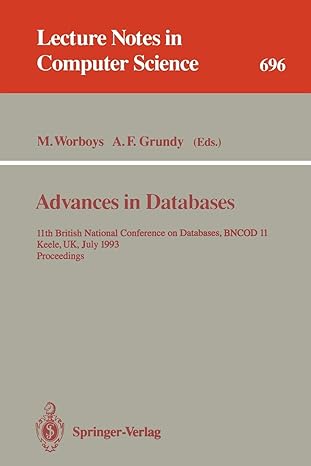Answered step by step
Verified Expert Solution
Question
1 Approved Answer
Let A = [A[1], A[2], . . . , A[n]] and B = [B[1], B[2], . . . , B[n]] be arbitrary (not necessarily sorted)
Let A = [A[1], A[2], . . . , A[n]] and B = [B[1], B[2], . . . , B[n]] be arbitrary (not necessarily sorted) arrays containing 2n distinct positive integers. Array A dominates array B if it is possible to rearrange the arrays in a way such that A[i] > B[i] for all 1 i n. Describe an efficient algorithm that decides if array A dominates array B. What is the complexity of your algorithm? Explain why the algorithm is correct and justify your complexity claim.
Step by Step Solution
There are 3 Steps involved in it
Step: 1

Get Instant Access to Expert-Tailored Solutions
See step-by-step solutions with expert insights and AI powered tools for academic success
Step: 2

Step: 3

Ace Your Homework with AI
Get the answers you need in no time with our AI-driven, step-by-step assistance
Get Started


